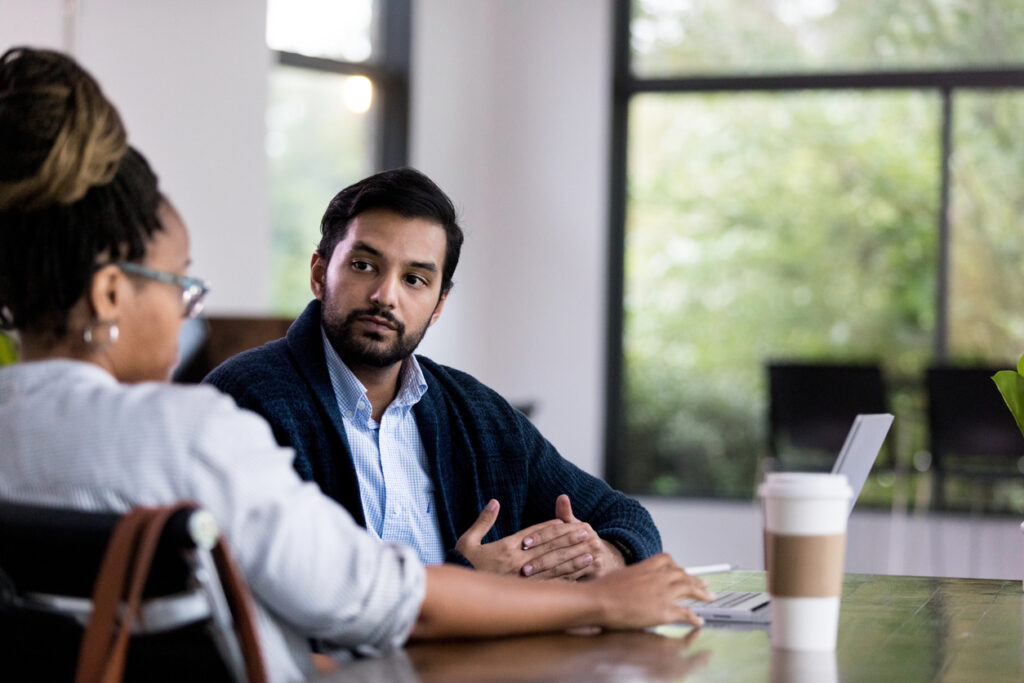Some things are really hard to talk about, they make us feel uncomfortable and we are fearful of saying or doing the wrong thing, which is why we tend to avoid these conversations.
These things, with the power to make us feel like this, are what we need to talk about if we are going to learn and change. What’s more, those who are directly impacted also desperately want someone else to talk about, to challenge and to help change these things.
Current events mean there has been lots of coverage about how to talk about race and racism in workplaces, how to acknowledge white privilege and what this means. I am currently reading Reni Eddo-Lodge’s ‘Why I’m no longer talking to white people about race’ and am utterly overwhelmed by how little I knew about the history of racism and why it is so complex. I am ashamed it has taken me until now to read it.
I found this combination of choosing to educate myself along with an open conversation hugely helpful. The conversation has allowed me to be curious without worrying about saying the wrong thing. I can see how I can influence beyond not being racist to being anti-racist and becoming an ally. I can also see the need or possibilities of doing this across a range of other differences – sexual orientation, mental health, gender, amongst others.
We need to be prepared to talk about power and privilege together and acknowledge that significant change is needed across society.
How do we create safe spaces to talk, share, grow and learn?
We need to accept two key things – privilege and inclusivity – and, if necessary, shift our thinking on them.
Privilege
Often when we talk about privilege people get defensive, close down and want to deny this or counter it by listing all the things they were denied or had to fight for. Having some privilege doesn’t mean your life is perfect, it means some things are easier for you than they are for others.
We need to be prepared to talk about power and privilege together and acknowledge that significant change is needed across society. We also need to accept that those who have benefitted from the current system need to accept and understand that the change may shift the balance of power to something more equal.
The reality is that privilege is just a thing, it is a set of circumstances influencing the choices that become available to you – it is not a thing to be ashamed of or to deny, it is just a thing. And if you have more of this thing than someone else, you can help them. It is much easier to unlock doors from the inside than to get through a locked door from the outside. For many elements of privilege it is not a finite thing – bringing in others does not disadvantage those already there.
If as a team you can learn to talk about the tough stuff you will grow together.
Inclusivity
We also need to redefine inclusivity. We need to be honest about what we embrace and accept, what we tolerate, what we will not tolerate. We need to be prepared to truly mean this and to be clear about where the red lines are as they often sit in spaces that exclude large groups of people from ‘normal’ society.
-
Should we include people who have committed criminal offences in the past?
-
Should we include people who have serious mental health problems?
-
Are we fully accepting (or even understanding) of the range of genders and sexual orientations that are in today’s society?
When we think about these things are there caveats? Does it depend how extreme the offences are, or the illness is? Do we set parameters on the basis of our perception of personal risk? Do we put spatial boundaries on these things? Or are we happy to extend a warm welcome to our workplaces, our neighbourhoods, our lives?
Where are your red lines? What do you embrace? What do you tolerate?
How have these lines shifted over time and what has helped you to shift them?
Learning to talk about the tough stuff as a team
For me, the shift in thinking has always come from developing my understanding and finding safe spaces to explore so I can understand properly, I relish these spaces, I have learnt more by listening than being taught. How do we learn to listen more? How do we share our stories so we can help everyone to understand more?
The things that are hard to talk about vary from team to team. But they are usually there if you look hard enough. If as a team you can learn to talk about the tough stuff you will grow together.











